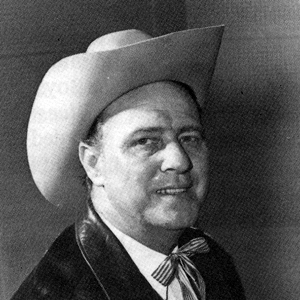"I make the bottles bounce on the table" is how Moon Mullican once described
his barrelhouse style of piano playing. Though he's not widely remembered,
Mullican is one of the pioneers who fused country, blues and pop, and paved the
way for rock & roll.
Aubrey Mullican was born on a farm in east Texas. One of the sharecroppers who
worked the Mullican family's land taught eight-year-old Aubrey some bluesy
licks on the guitar, and he became smitten with the sound. Soon he had
commandeered the family's pump organ, pushing aside the religious sheet music
and learning the blues by ear.
At 16, Mullican left home and started playing in saloons and bordellos. "The
ladies of the evening would come and sit on the piano bench and fan me as I
played," he recalled. Early on, he picked up his nickname, though the origin is
hazy. It might have had something to do with moonshine, his balding head or the
dusk-to-dawn hours he kept.
In his twenties, Moon joined fiddle player Cliff Bruner's Texas Wanderers, a
band that's often said to be the link between Western swing and honky-tonk.
With Bruner, Mullican developed his "three finger style," hammering the treble
keys with a flat right hand, while his left walked syncopated boogie-woogie
bass lines. Because he sang as well as he played, he didn't remain a sideman
for long. From the mid 1940s to the early '50s, Mullican cut solo sides,
including the self-penned hits "Cherokee Boogie," "Sweeter Than the Flowers"
and the million-selling "I'll Sail My Ship Alone."
His friend Hank Williams brought him into the Grand Ole Opry cast in 1951. It
was an open secret that Mullican helped Williams write his classic "Jambalaya."
Afterwards, Mullican received 25 percent of the song's royalties on the sly (a
legally binding record contract was to blame). As rock & roll exploded, singing
pianists like Jerry Lee Lewis and Little Richard added their own raucous takes
on Mullican's brand of ivory-pounding. But Mullican was a few years too old to
cash in on the new sensation. In the late '50s, he recorded some Nashville
Sound-style sides with producer Owen Bradley, but they weren't
successful.
After surviving a heart attack in 1962, Moon kept performing in and around his
home in Beaumont, Texas. On January 1, 1967, a second heart attack killed him.
